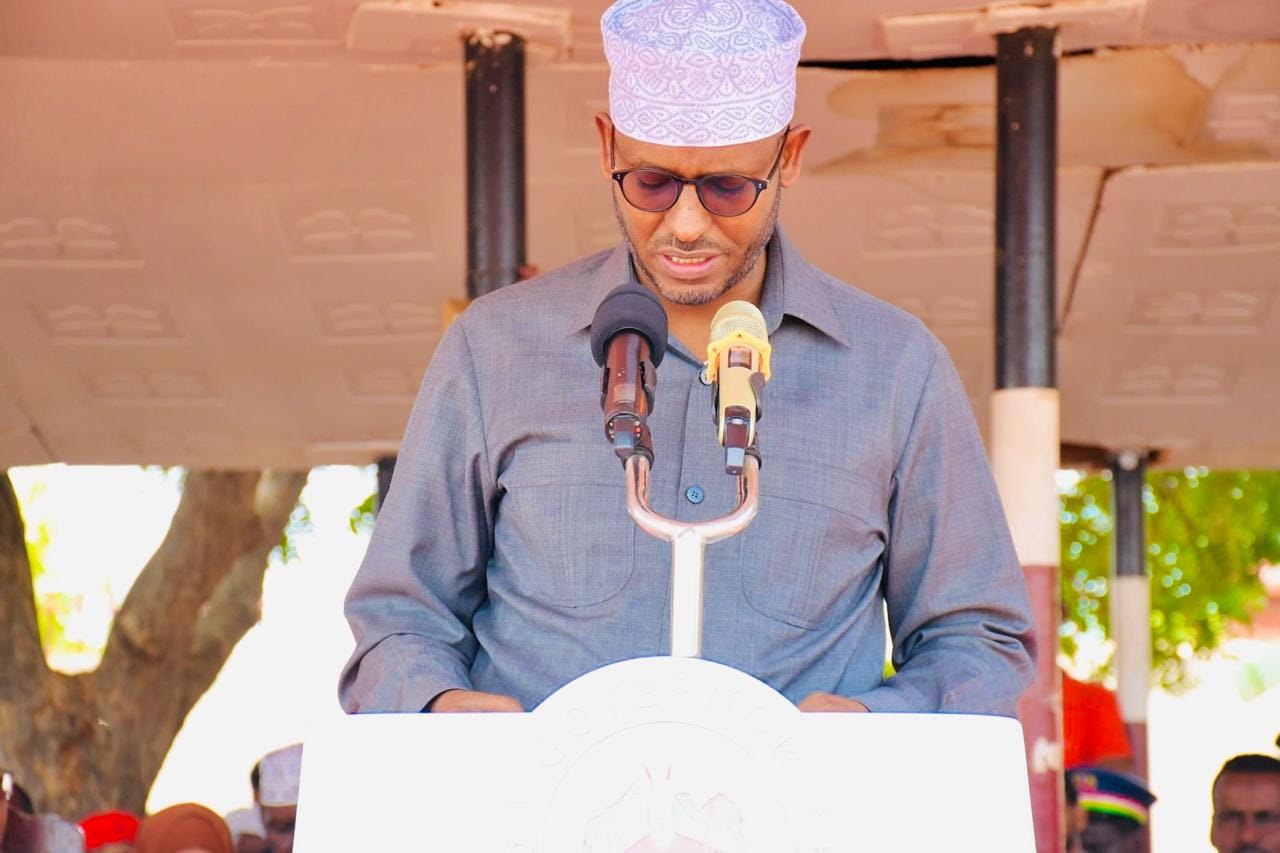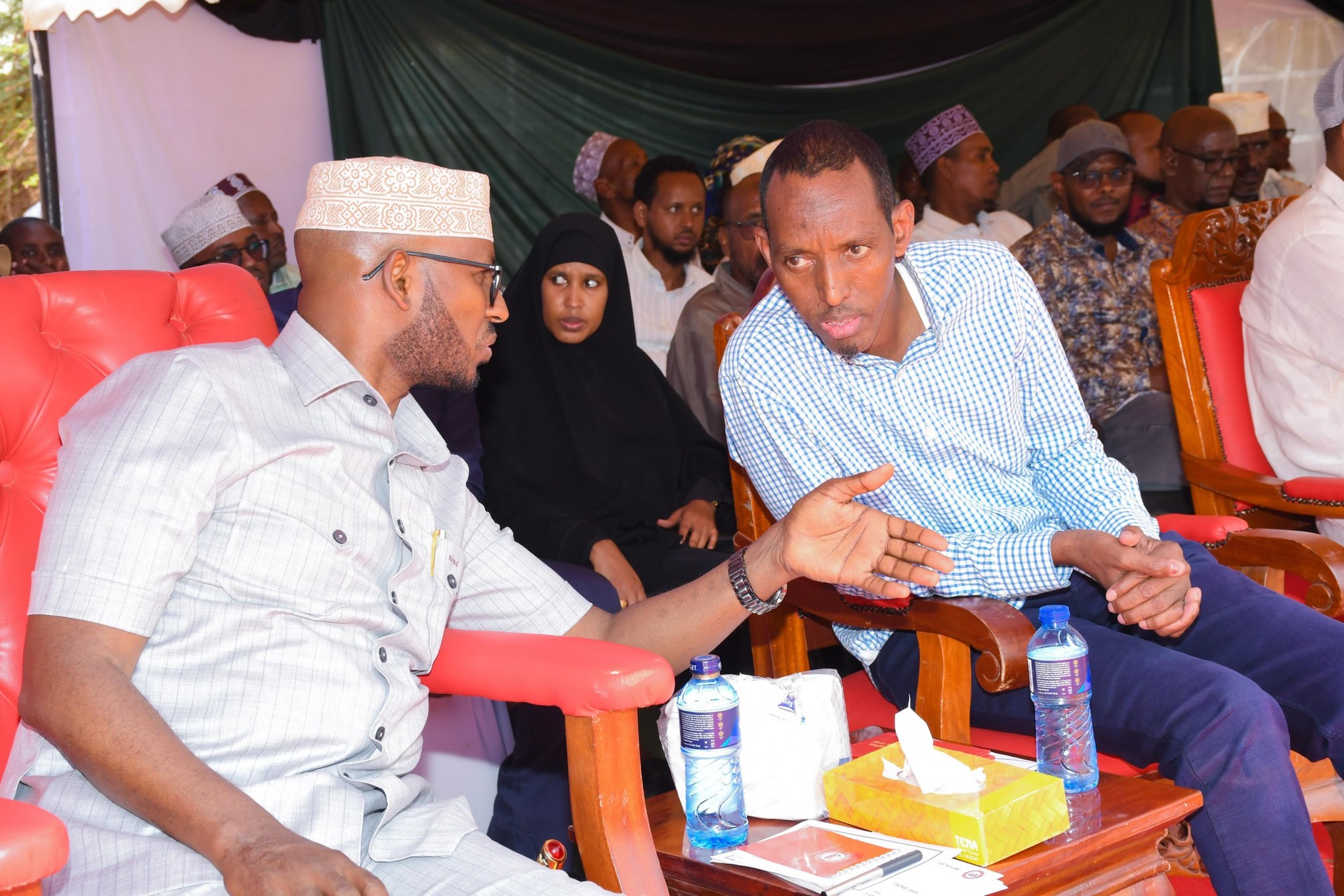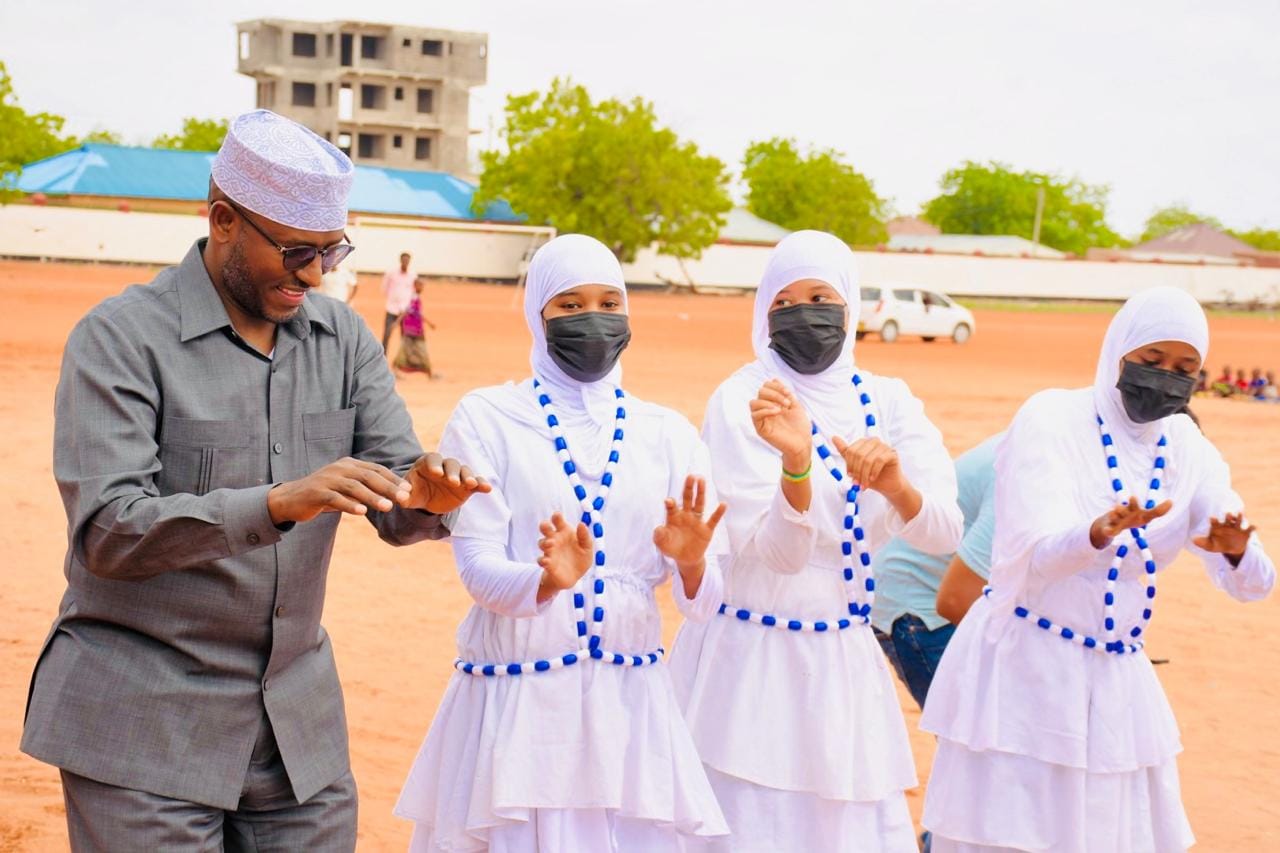
 Wajir Governor Ahmed Abdullahi speaking in Wajir Town./PHOTO: STEPHEN ASTARIKO
Wajir Governor Ahmed Abdullahi speaking in Wajir Town./PHOTO: STEPHEN ASTARIKO Wajir Governor Ahmed Abdullahi with his Deputy Ahmed
Muhumed./PHOTO: STEPHEN ASTARIKO
Wajir Governor Ahmed Abdullahi with his Deputy Ahmed
Muhumed./PHOTO: STEPHEN ASTARIKO Wajir Governor Ahmed Abdullahi joins dancers in a jig./PHOTO: STEPHEN ASTARIKO
Wajir Governor Ahmed Abdullahi joins dancers in a jig./PHOTO: STEPHEN ASTARIKOWajir Governor Ahmed Abdullahi on Tuesday reaffirmed his administration’s commitment to improving the land sector.
Governor Abdullahi pledged to tackle longstanding challenges and promote sustainable land use.
Speaking in Wajir Town, Abdullahi, who also chairs the Council of Governors, said the county is determined to realize a vision for sustainable land use, secure land tenure, and well-planned urban and rural development.
To achieve this, he announced that the lands, physical planning, and urban development department has completed seven local physical and land use development plans.
These plans cover the towns of Bute, Eldas, Griftu, Hadado, Habaswein, Khorof-Harar, and Tarbaj.
“These plans are crucial for making urban centers more productive, competitive, livable, and investor-friendly,” Abdullahi said.
“They’re intended to position these towns as key drivers of growth and development in our county.”
However, Abdullahi acknowledged that securing land tenure in the region remains a major challenge. Most land is held under customary systems without formal registration, making it vulnerable to land grabbing and legal disputes.
The community’s nomadic and pastoralist lifestyles further complicate efforts to establish permanent land boundaries and titles.
He also highlighted how land disputes in the area are often rooted in ethnic tensions, historical injustices, and political marginalisation—factors that make tenure security a volatile issue.
Compounding these challenges are increasing droughts and land degradation, which have intensified competition for grazing land and water sources.
To address these concerns, Abdullahi said the department has already completed a survey of 3,000 plots within informal settlements in Wajir municipality.
This initiative aligns with the county’s Integrated Urban Spatial Plan, ensuring orderly land administration and management.
He added that, to date, 20,000 plots across the county have been surveyed, and the processing of title deeds is underway.
“My administration is committed to improving land tenure security throughout the county,” he said. “This is critical to establishing an efficient land administration system.”
In collaboration with the Ministry of Lands and Physical Planning and the National Land Commission, Abdullahi said his government is working to issue allotment letters and leasehold titles for residents of Wajir municipality.
The county aims to process 5,000 titles under a robust titling programme.
“Title deeds are essential collateral for those seeking financial assistance,” he said.
“By increasing access to secure land ownership, we can unlock business opportunities and significantly reduce poverty in our communities.”
Abdullahi also called on the State Department of Lands and Physical Planning to establish a land registry in Wajir County to centralise services and make land transactions more accessible to residents.
Emphasizing the role of technology in promoting transparency and accountability, the governor announced that the county’s Land Information Management System (CLIMS) is ready for deployment.
The digital platform will digitise land records and automate key services in the land sector.
“This system will greatly improve service delivery and support data-driven decision-making,” he said.
Abdullahi concluded by urging all stakeholders to work together to ensure secure and sustainable land use for the benefit of current and future generations in Wajir.












